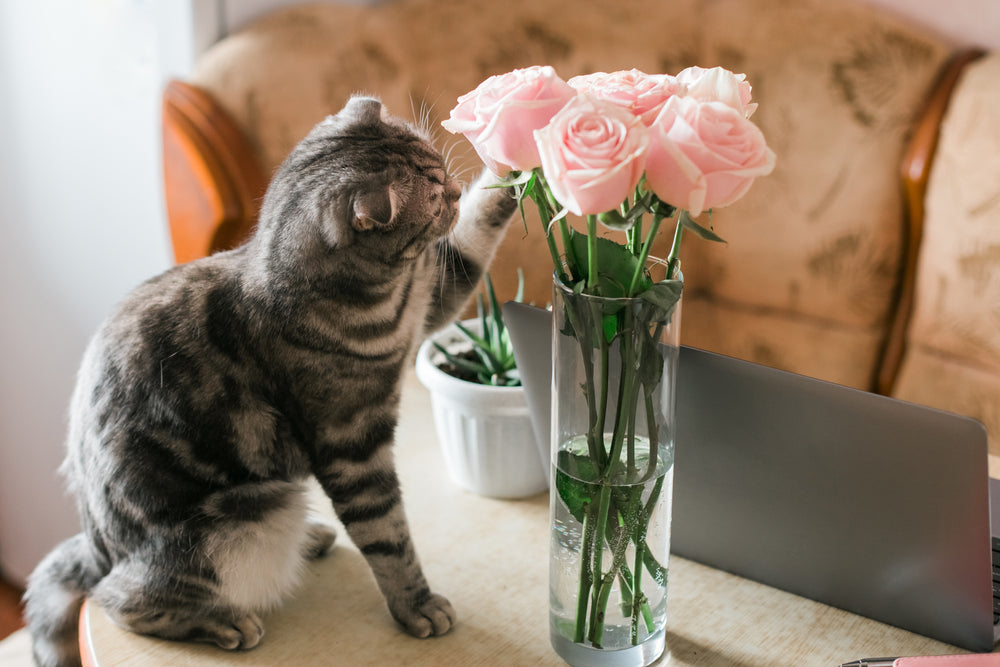Flowers and indoor plants have always been the simplest and most effective ways to decorate homes, living spaces, and work studios.
And when you’re out in nature for a breath of fresh air, flowers can help lighten up your mood and the smile on your face!
But with different kinds of flowers at your disposal, you must be extra cautious if you are a cat parent.
While many new cat owners and would-be cat owners ask if flowers are poisonous to cats, there’s more to it than just a “YES.”
Keep reading this informative article to learn whether flowers are poisonous to cats – if backed up by evidence or a telltale statement.
Flowers and Cats
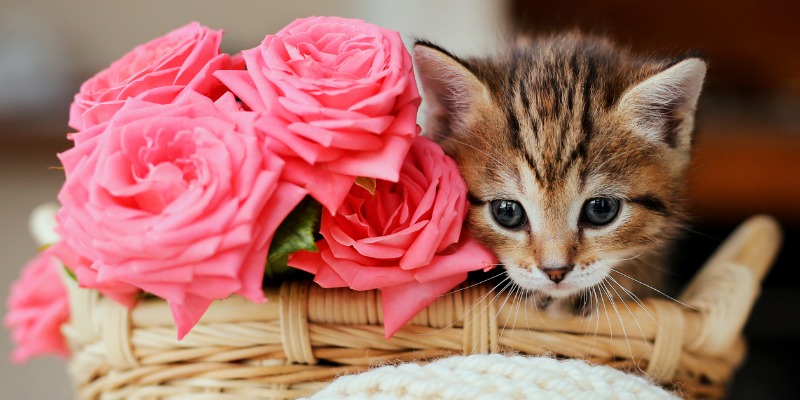
Cats are some of the most curious creatures on the planet, and they must chew and taste new things (including flowers and plants) they see.
Being their parent, you must stay wary about it, especially regarding floral decor. This is because, yes, flowers are poisonous to cats.
According to ASPCA Animal Poison Control Center reports for 2021, nearly 10 percent of all cat-related emergencies were due to ingesting toxic plants. The good news, however, is that not all plants harm them.
Moreover, it’s not just flowers; different plant parts could harm cats. Thus, as cat owners, you have to pay attention to which flowers and plants are harmful to them and which aren’t.
Why are Flowers Poisonous to Cats?
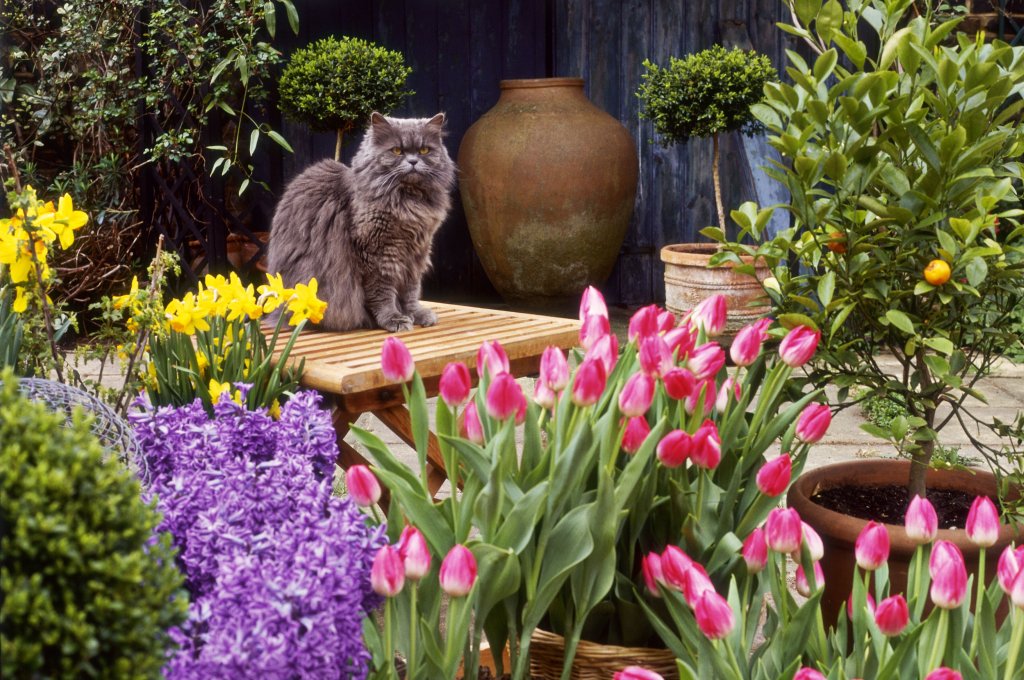
Now that you have gotten your answer to the question of whether flowers are poisonous to cats, here’s an explanation of why. Not everything that cats eat is required by the body, and the ones that aren’t are eventually excreted.
The same happens for ingested materials that are harmful to them. Glucuronidation is a process by which the liver converts harmful or unwanted substances into excretory substances. With plants and, specifically, flowers, this glucuronidation does not occur.
Hence, they stay in the cat’s system and cause harm to them, which may range from organ damage to even death!
Symptoms of Flower Poisoning in Cats
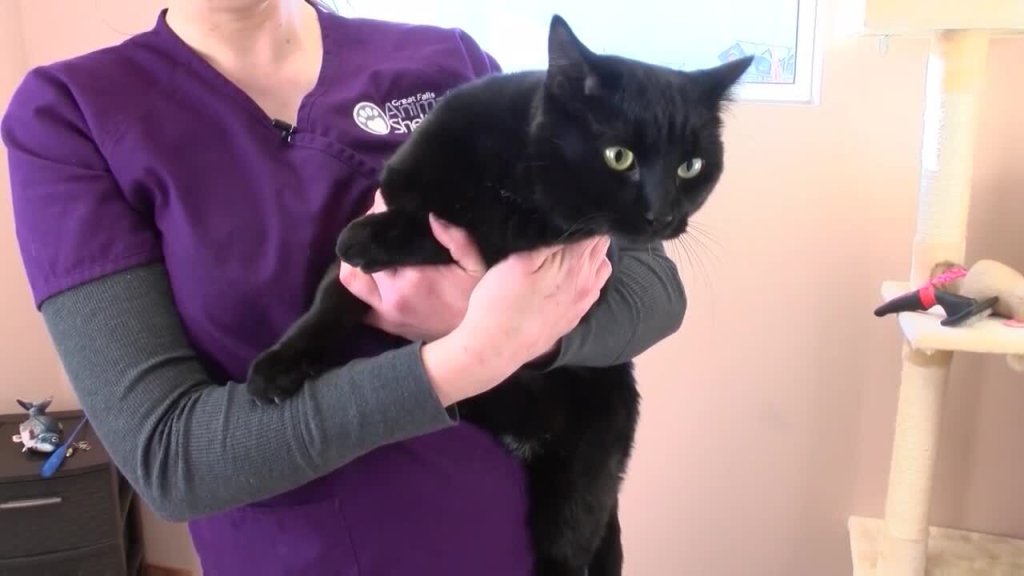
If your cat eats a toxic plant or a part of the plant that is unsuitable for it, chances are that they will develop symptoms right away.
However, the exact timing of them showing symptoms of a flower or plant poisoning may vary depending upon the amount ingested, the severity of toxicity, the cat’s general health condition, and its age.
These are a few symptoms they show after ingesting a poisonous flower or other parts of a poisonous plant.
1. Initial Symptoms
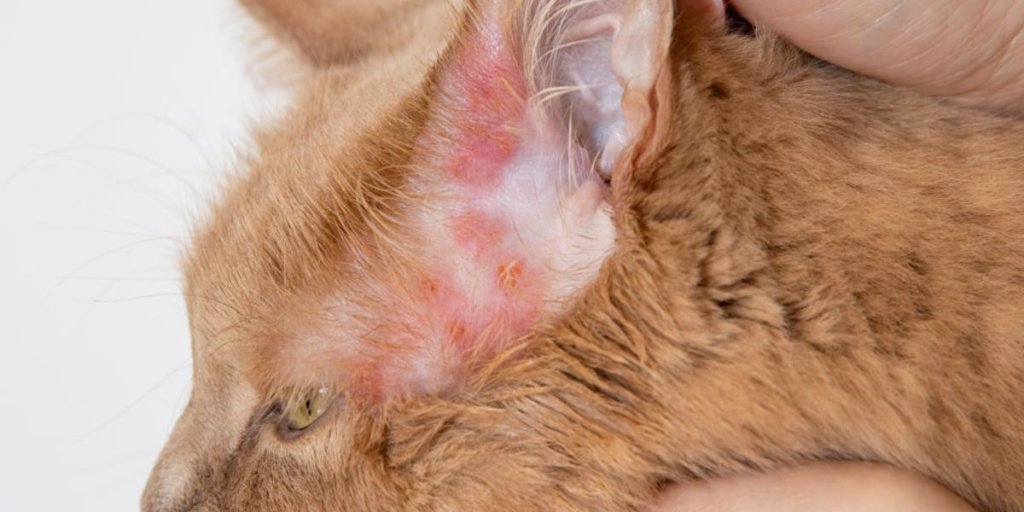
These are the first line of symptoms and include:
- Excessive itching
- Redness and inflammation on the face, limbs, and other parts of the body
- Excessive sweating
- Excessive drooling
- Inability to move, stand, or sit
- Panting
2. Intermediate Symptoms
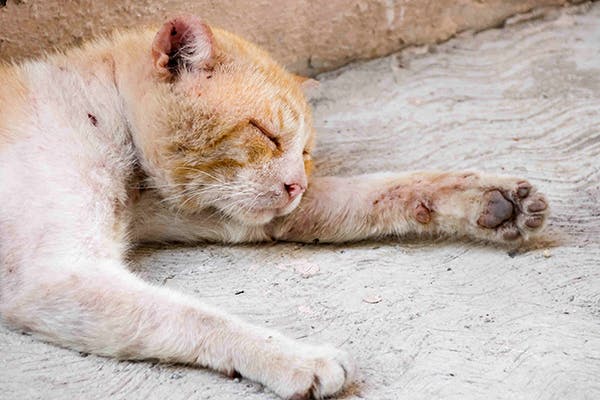
These constitute the second line of symptoms and usually indicate that at least some time has passed since your cat ate the toxic plant, including:
- Vomiting
- Diarrhea
- High-grade fever
- Seizures
- Chills
- Abdominal pain and discomfort
- Drop in blood pressure
3. Severe Symptoms
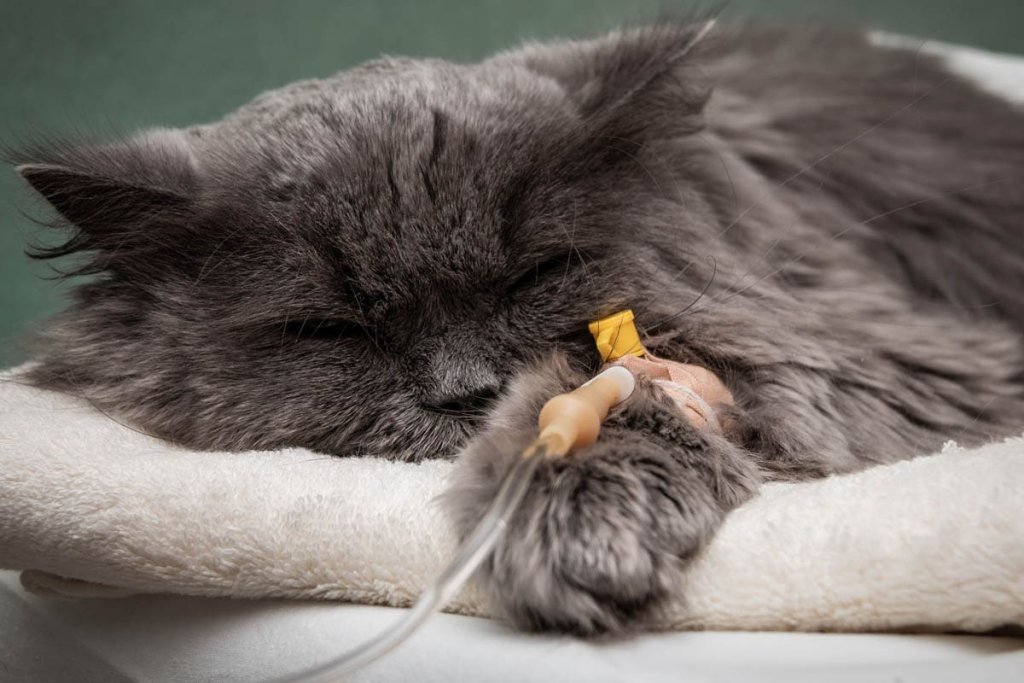
These are the last-stage symptoms, and if you notice them, do not waste time and immediately call up a pet helpline. These include:
- Absence of urination or excessive urination
- Difficulty in swallowing
- Extreme lethargy
- Breathing difficulties
- Irregular heartbeat
- Shock
- Collapse
- Coma
Flower Poisoning in Cats: What to Do
In case of an untoward incident of a plant or flower poisoning of your cat, here is what you need to do during the crisis:
Step 1: Confine the Cat
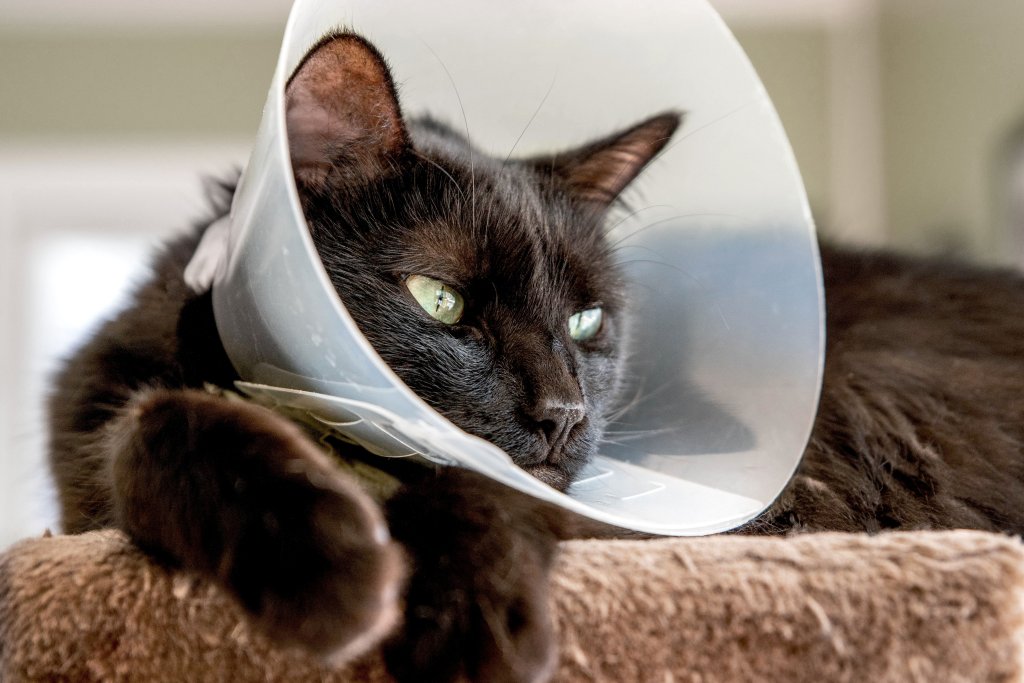
Cats often get pollen stuck on their fur, so the first step would be to put your cat away from the source of poison in a confined space while you get ready to go to the vet.
If you have one, use an Elizabethan collar to prevent them from licking their paws, which may aggravate their symptoms.
Step 2: Seek Help
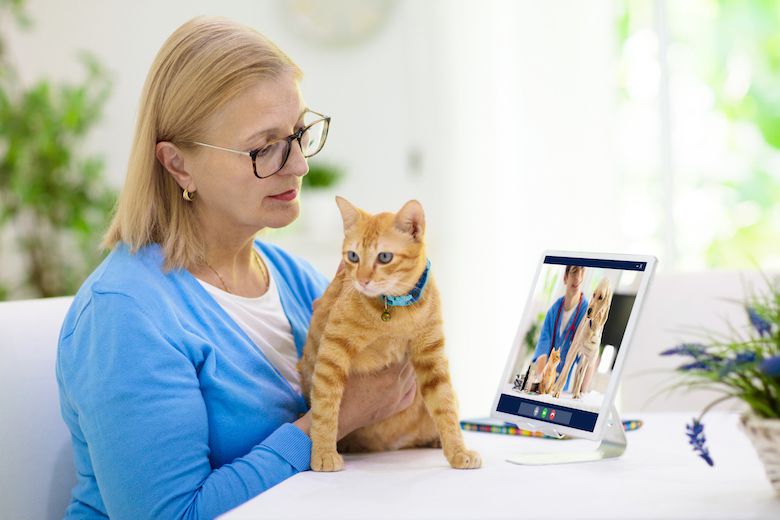
Immediately take your cat to the vet or call the ASPCA Animal Poison Control or the Pet Poison Helpline for assistance. If you know which plant may have caused the poisoning, take a sample of it with you. If not, take a sample of vomit or any other excretory material of your cat to help doctors identify the toxic substance.
Identifying the source of poisoning helps in planning out the correct treatment plan. And the most important part of the process is NOT to panic.
Preventing Flower Poisoning in Cats
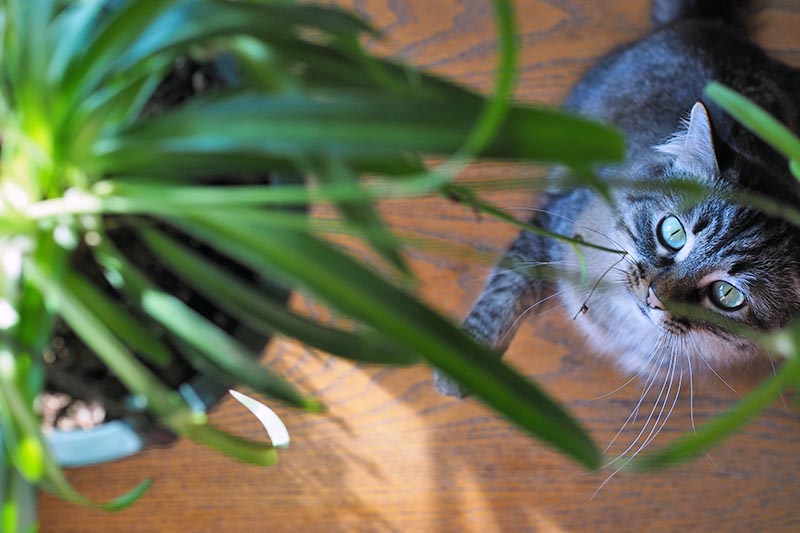
As a cat parent, ensure the following to prevent pet flower and plant poisoning.
- Make a list of plants and flowers that are toxic and non-toxic for your feline. Choose plants from the latter list for your house and garden.
- Keep plants out of reach of your cats. Felines are great climbers, so it is always wise to use hanging planters in the house.
- Use cat-repellent sprays for plants in your house.
Conclusion
Felines are curious by nature, and, just like human children, you can neither stop nor get angry at them for consuming harmful things. Because obviously, they don’t know any better. As their parent, you are responsible for keeping them away from harmful plants.
Of course, it is impossible to keep them under your supervision every minute; hence, cat-proofing your plants and homes is essential if you are looking to adopt one or have already done so recently.
Have you cat-proofed your home now that you have decided to get one for yourself?
If not yet, how are you planning to move ahead with it? Let us know in the comments section below.

